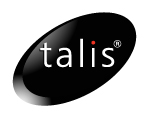REUSE AND ADAPTATION OF ONTOLOGIES AND TERMINOLOGIES
CONTEXT AND MOTIVATION
Thanks to progress performed by the knowledge engineering area, powerful methods for designing and use of ontologies are provided. As a result, the scientific and industrial communities have gained access to an increasing number of ontologies and terminologies. For instance, within the biomedical area, several dozens of orthogonal or generic ontologies and terminologies are currently available thanks to the OBO (Open Biological and Biomedical Ontologies) or UMLS initiatives: the objective is to make them interoperable and hence reusable. The usage of an ontology or terminology is often characterized by several factors between which we would name: application, scientific or technical domain, language of data and of documents to be processed, user profile, etc. All of them influence the content and organization of the semantic resources (terminologies and ontologies). Exploitation of these resources in this original context ensures their optimal use and results.
We assume that reuse of such resources implies that at least one of the designing factors is modified: application, user, domain ... Hence, the reuse implies also that an adaptation of ontologies and terminologies is performed. This process appears to be necessary in order to guarantee an optimized exploitation of the reused ontologies and terminologies.
OBJECTIVES
Further to recent evolution of the knowledge engineering area and to emergence of new context related to the reuse and adaptation of ontologies and terminologies, several questions have arised and still arise. We propose to address them in this workshop and encourage submissions on topics related to questions such as:
- Which areas have developed and currently provide freely available ontologies and terminologies?
- Are these ontologies and terminologies specific to a given application, sub-domain or rather generic and descriptive of the area?
- At which extend the existing ontologies and terminologies may be reused?
- Whether the existing ontologies can be adapted to new purposes?
- Is their adaptation a suitable process?
- Is their adaptation less expensive than the designing of new ontologies?
- What knowledge elements can be reused: terms, concepts, relations,roles, definitions ...?
- Are terminologies more easily reusable than ontologies?
- What methods and principles should be exploited for the adaptation and reuse of the existing ontologies?
- How the mapping of ontologies may be helpful for their reuse?
- Which role play corpora in adaptation of terminologies and ontologies?
- Are Natural Language Processing methods helpful in the process of adaptation of terminologies and ontologies? If they are, which of them prove to be suitable?
This workshop may also be concerned with questions related to managing of the evolution of ontologies and their versioning and to analysis of evolution of their content (i.e., concept emergence, removal, abstraction or specialisation), especially when combined with questions cited above.
ORGANIZERS
Natalia Grabar (1,2), Thierry Hamon (3) and Marie Dupuch (1)
AFFILIATIONS
- Centre de Recherche des Cordeliers, Université Pierre et Marie Curie - Paris6, UMR_S 872, Paris, F-75006; Université Paris Descartes, UMR_S 872, Paris, F-75006; INSERM, U872, Paris, F-75006 France
- HEGP AP-HP, 20 rue Leblanc, Paris, F-75015 France
- LIM&BIO (EA3969) UFR SMBH, Léonard de Vinci Université Paris 13, 74 rue Marcel Cachin 93017 Bobigny Cedex France
CONTACT
ReuseOnto-EKAW2010@listes.univ-paris13.fr










